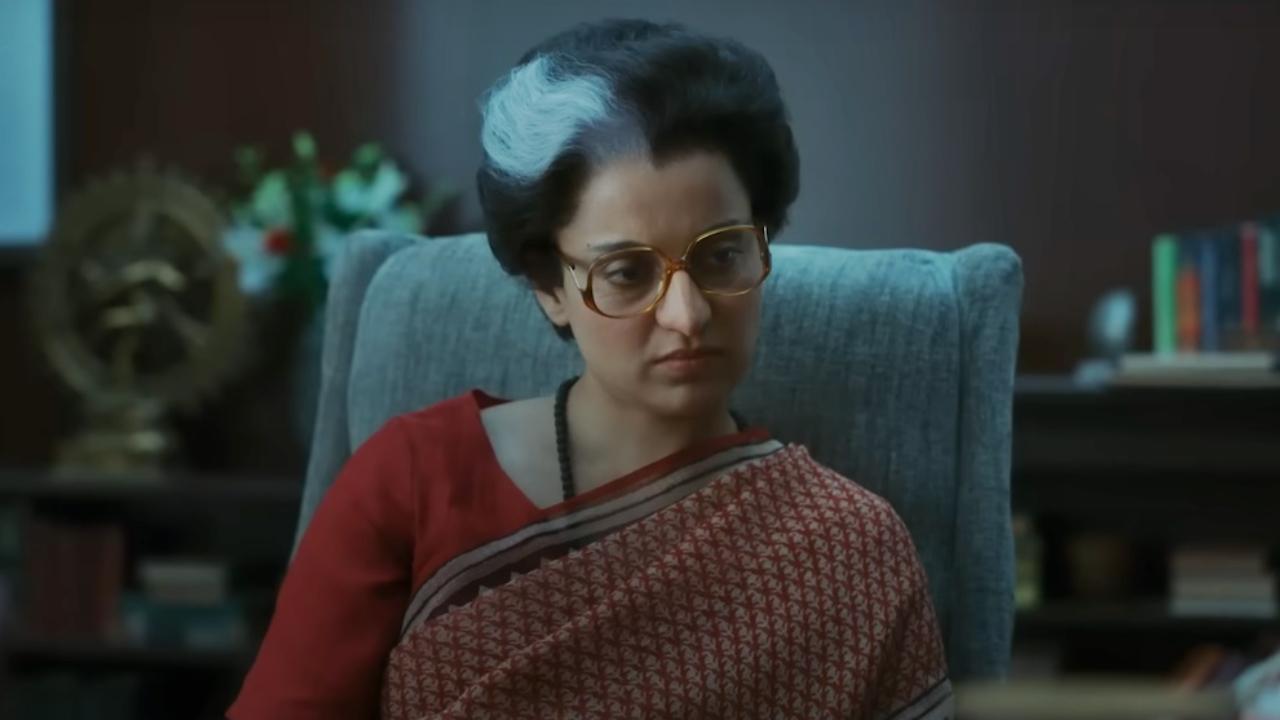
In a significant and escalating controversy, the Akhal Takht, revered as the highest temporal seat of the Sikhs, alongside the Shiromani Gurdwara Parbandhak Committee (SGPC), has called for an instant prohibition on Kangana Ranaut’s upcoming film ‘Emergency’. The signals of distress emerged shortly after the trailer’s release, with Sikh leaders accusing the film of attempting to “character assassinate” members of their community.
‘The Emergency’ is a historical-political drama spearheaded by Kangana Ranaut, who steps into the role of one of India’s most prominent political figures, the former Prime Minister Indira Gandhi. The film, which also boasts a cast featuring Anupam Kher, Mahima Chaudhary, Milind Soman, Shreyas Talpade, Vishak Nair, and the late Satish Kaushik, encapsulates the turbulent period during which the Emergency was declared in India in 1975.
The film’s trailer delves into Indira Gandhi’s intricate political journey, portraying her relationship with her father, Jawaharlal Nehru, and highlighting the various conflicts and political struggles she faced throughout her career. However, this cinematic reimagining has sparked a bitter storm among the Sikh community, particularly due to the portrayal of the events surrounding the infamous Operation Blue Star in June 1984.
At a recent press conference, SGPC President Harjinder Singh Dhami articulated vehement objections to the film, calling for legal action against Kangana Ranaut. Dhami accused the actress and filmmaker of indulging in activities that aim to “deliberately character assassinate” Sikh figures.
Echoing these sentiments, Gyani Raghbir Singh, the Jathedar of the Akal Takht, condemned the film’s depiction of Sikhs. He stated that the released excerpts suggest a blatant misrepresentation of Sikhs as separatists, labeling the depiction as a part of a broader conspiracy. Singh berated the acts as a “despicable offense” intended to disrespect the Sikh community by crafting an “anti-Sikh narrative about the martyrs of June 1984.”
The Jathedar firmly reiterated the community’s perennial significance of the martyrs of June 1984, notably Jarnail Singh Khalsa Bhindranwale, whom the Sri Akal Takht Sahib has venerated as a Qaumi Shaheed (community martyr). This esteemed status, according to Singh, is being undermined by the narrative espoused in Ranaut’s film.
.
Apart from historical grievances, Dhami pointed to Ranaut’s controversial persona, attributing her film and past statements to a deliberate attempt to provoke Sikh sentiments. He emphasized the numerous instances where Sikh characters have been misrepresented in films, thus causing significant emotional distress within the community.
Dhami called upon the government authorities, particularly the Union Minister of Information and Broadcasting, to enact an immediate ban on ‘Emergency’. He stated that it is imperative to ensure that no future films capable of inciting such sentiments are allowed to release. He accused the government of inaction and even tacit protection of Ranaut despite her provocations against the Sikh community.
Central to Dhami’s appeal was a push for the inclusion of Sikh representatives within the Central Board of Film Certification (CBFC). He argued that the absence of Sikh members has led to biased decisions, urging that Sikh perspectives are essential for fair and unbiased film certifications. The SGPC has repeatedly raised this demand but has noticed little government response. Dhami highlighted several resolutions passed in the SGPC’s general meetings to this effect, emphasizing the growing need for inclusivity in decision-making bodies like CBFC.
The fervor surrounding the film comes as it is scheduled to be unveiled globally on September 6, 2024. This anticipated release of ‘Emergency’ is set against the backdrop of its controversial nature, exploring one of the most contentious periods in India’s political history.
With the SGPC and the Akal Takht’s demands gaining traction, the spotlight is now on the government and film certification bodies to see how they navigate this escalating dispute. The situation underscores a tension between creative expression in the film industry and sensitivities of historical and community representations, a recurring theme in the vibrant, complex tapestry of India’s cultural and political landscape.
(With inputs from PTI)












